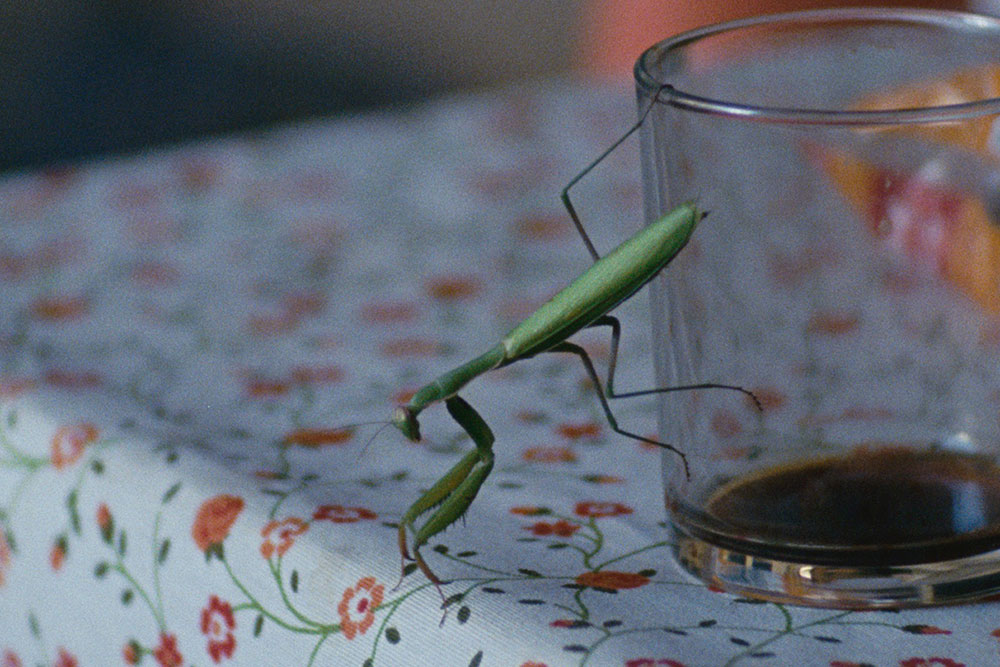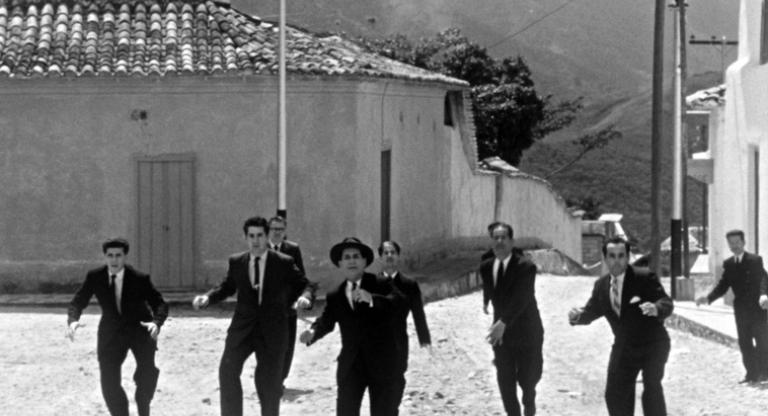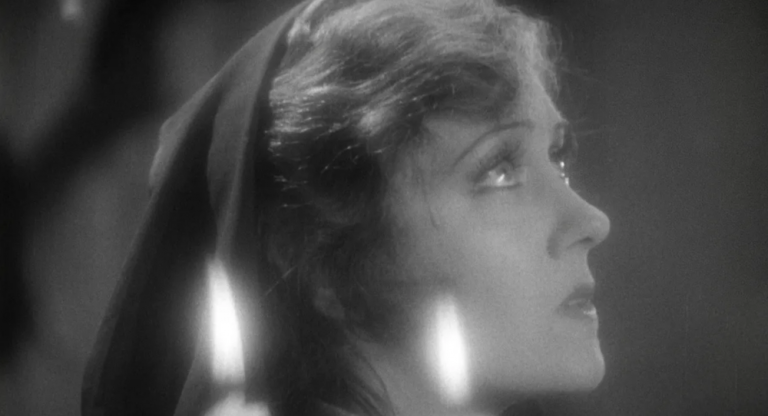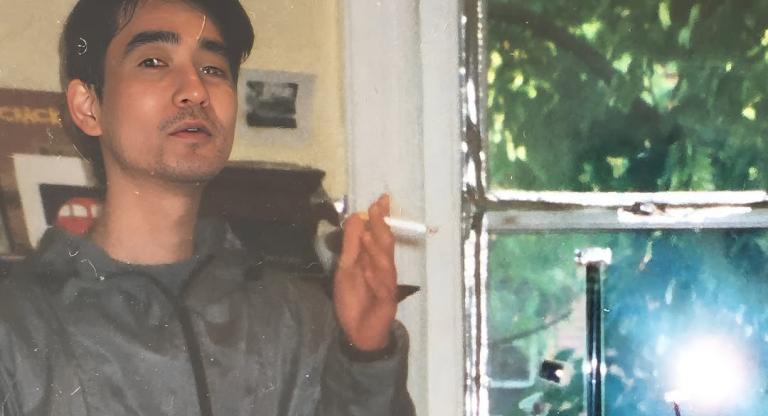Ahead of the New York premiere of Familiar Touch (2024) at New Directors/New Films, director Sarah Friedland gave a short, sweet, and grateful speech. During this speech, she mentioned how delighted she was that Familiar Touch was screening at the Walter Reade, where she’d first encountered the work of filmmakers like Wang Bing and Angela Schanelec. She mentioned other festival darlings and spoke of the theater as a classroom that showed her forms of filmmaking that fell outside of regular distribution channels, in addition to equipping her with the tools to envision how to make her own feature debut, an agreeable coming-of-age film about an eighty year-old woman adapting to life in an assisted living facility and contending with memory loss. Familiar Touch unfolds in a series of economic scenes, most of which are shot from fixed perspectives. It's a well-tailored film, of earnest and commendable aims, that is fluent in the language of festival filmmaking.
Although I have unfairly singled out Familiar Touch to discuss the ossified state of the festival film, it strikes me as a paradigmatic example of trends that pervaded this year’s edition of ND/NF, as well as New Year / New Work at The Film-Maker’s Cooperative, and, to a lesser extent, First Look at the Museum of the Moving Image. Sketching out a theory as to why the slow, personal, political flirt was so ubiquitous across New York’s string of springtime films festivals would be a fool’s errands and stating that the festival film has calcified into a tired genre would be unoriginal; my aim, however slight, is to comment on the fact that it appears our latest generation of filmmakers are a bunch of do-gooders who are all too aware and willing to reproduce the conventions of proper filmmaking. Of course, both programmers and audiences play a role here, in respectively promoting and applauding the expected.
Before I lunge into discussing the tropes that made up the aforementioned festivals, I’d like to single out a couple of films that struck me as unique — that is, in spite of their own use of archival imagery, 3D-models, and expected narratives revolving about the marginalized and dispossessed. First, there is Park (Taman-taman) (2024), about Indonesian immigrants in Taiwan. It is an open film that follows the words and stories of its poet-subjects wherever they go, presenting a rhizomatic cinema that upholds the surprises of storytelling and public space. Then, there is Ewelina Rosinska’s short Unstable Rocks (2024, pictured at top). Shot in Portugal, with artists and environmental activists, this lovely medley reflects an intuitive sort of filmmaking that has become all too rare in contemporary experimental cinema. Assured in its rhythm, as well as its visual language, Rosinka’s film, and her work overall, necessitate further recognition. What she manages in her filmmaking is an extreme balancing act, at times capturing the natural world like an alien amazed at their first glimpses of Earth, and at other times conveying a knowledge of people, animals, and places that seems ancient, aware of how best to shine a light and frame each skin pore and blade of grass that crosses her camera. More expected, though equally exceptional, are Virgil Vernier’s 100,000,000,000,000 (2024), Charlie Shackleton’s Zodiac Killer Project (2025), Bill Morrison’s The Vanguard Tapes (2024), Courtney Stephens’s Invention (2024), and Maxime-Jean Baptiste Kouté vwa (2024). All of these films, with the exception of Kouté vwa and Invention, screened at MoMI’s First Look. Those exceptions were part of ND/NF.
Also at ND/NF were a batch of shorts that shared a mild sense of ambition. Often flaunting the same understanding of the vogue epistolary style of filmmaking that juxtaposes political narration with absorbing visuals, films like Maureen Fazendeiro‘s Les Habitants (2025) and Camile Vigny’s Crushed (2024) proved redundant in the program. While the heartfelt reflections of Vigny’s film were more memorable than the distant narration in Les Habitants, both films seemed to think an audience could be tricked into recognizing the dialectical simplicity of audio-visual contrast as high art. Also among the shorts was Kevin Walker and Irene Zahariadis’s Things Hidden Since the Foundation of the World (2025), which, though reliant on similar filmmaking techniques, let itself develop in unexpected ways, attending to the mysticism of its narrative rather than any imposed formal framework.
Neither idiosyncrasy nor accident was present in the 12 short films I saw from the Film-Maker’s Cooperative’s New Year / New Work. The program I attended included 24 films total, and I figure another 24 screened as part of the first program. Nevertheless, the tedium of recycled scenes and sights—the over-use of multiple panels, excessive and indulgent narration, sex-forward though unsexy staging of bodies, and positioning of televisions as a metaphor for alienation—yielded a rather tame night at the movies. Though Rrose Present’s Your Eyes in my Hands (2025) and Tempest Creation’s Anarchy Artist (2025) offered some neat updates on the strobe-y color film and artist portrait, respectively, both films weren’t particularly novel. But at least, they embraced their volatility—of their flickering colors and madcap artist. While Present and Creation demonstrated a willingness to surrender their film to their apparatus and subject, respectively, the rest of the filmmakers in the program appeared to abide by a set of institutional expectations, as though hoping that if their films’ grain looked a certain way, or was edited in an irrational enough manner, or split up into hard-to-follow panels, it too could form part of the next Whitney Biennial.
A different directive defined the rest of the features at First Look and ND/NF. Durga Chew-Bose’s Bonjour Tristesse (2024), Opening Night film at First Look, almost entered the realm of parody with its display of erudition. A couple of subtle, complex performances from Lily McInerny, Claes Bang, and Chloë Sevigny prevent Bonjour Tristesse from letting its pretty, rote visuals transform its human story into a strange, staged act, but the lingering sensation that Chew-Bose has pieced her film together like a Pinterest Board haunts each frame and line of dialogue. There’s a bit of Jacques Rozier, Jean Vigo, and Angela Schanelec sprinkled throughout the film. While it is good to know that contemporary directors are taking their influences from such talented filmmakers, it’s sad to see their influence reduced to visual cues. The summer melancholy and careful framing of Schanelec lives in Bonjour Tristesse, as does the playfulness of Rozier and sharp editing of Vigo, but these influences are never expanded upon, never transformed into something new. It is as though contemporary cinema is experiencing a creative block, cribbing the old in hope of finding a new way forward, often languishing because it holds its predecessors in too high regard and is afraid that any personal interventions will result in public disapproval.
Constance Tsang’s Blue Sun Palace (2024) suffers from a similar endearment with the past, most pronounced in its casting of Lee Kang-sheng, who, while playing slightly against type, can’t help but remind the viewer that there exist better films about grief and economic uncertainty in contemporary capitalism—here, I am thinking of Lee’s work with Tsai Ming-liang of course. It’s inspiring to see so many filmmakers reach for those inimitable moments directed by their influences, but it’s also sad to see so many new filmmakers operate as though their own impulses won’t lead them to create memorable moments of their own. The shock of previous ND/NFs was missing this year, as was the surprise of New Year / New Work. And while most of the films discussed thus far are the works of rising filmmakers who will continue to challenge and reinvent their own cinema, it seems that contemporary directors are at something of a standstill, too informed about the past and too respectful of its cinematic traditions. A little loosening up and a possible new cinema might emerge.
Feedback Loop is a column by Nicolas Pedrero-Setzer reflecting on each month of repertory filmgoing in New York City.



